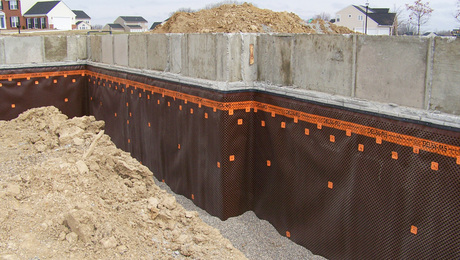Hi to all the Breaktime folks. I posted this message in the Housechat section and WAYNEL5 suggested that I might get a better response here.
My family and I are building a house in Houston, TX which is home to hard water with a nasty taste (a mixture of too much chlorination and the natural funky taste of the water). In my current (small) home, we have had to fight serious scaling and staining from the water but don’t have room for a large whole house conditioner/softener. We filter our drinking water with a refrigerator filter which works fine for taste. I tested the tap water at the new location and it is relatively clean in regards to serious forms of contamination like lead, copper, microorganisms, and the like. I want to make sure that we don’t have the same problems with scale, etc. in the new house. The plumbing contractor is recommending a whole house filter by EWS/Environmental Water Systems which is a granular activated carbon system with a catalytic process called Increased Calcite Nucleation – expensive to put in but without a lot of the drawbacks of a water softener (I’ve tried to convince some of my family members that they will get used to softened water but am getting a lot of resistance).
Does anyone have any experience with this general type of filter? I noticed in discussions a couple of years ago that several people had put in similar systems. Have those systems worked well? Has replacing the carbon been expensive? I would appreciate any feedback as I have been able to find little or no information on this type of system except that put out by the manufacturer.
Thanks,
Beth



















Replies
I have no experience with this system, but I'd look into reverse osmosis, via Google. It's a lot smaller than whole house filtration.
A cutoff valve is a very good thing to have with a filter. A bypass set up can be even better.
Why? One leaky filter, or a slightly mis-installed one, makes for a big mess when it's on the whole plumbing system.
Another thing to look into, is just point treatment. City water is generally fine for showers, washing clothes, flushing the toilet. Not much sense in filtering water going to the sewers. Adding a single valve faucet plumbed to a local filter at the kitchen sink is significantly easier than a whole-house system. A line filter for particulates might be just the thing for the laundry connection, rather than potable-quality filtration.
I've started using a whole house filter that is two stages - one paper and one charcoal. I'm on my second house. Not horrible expensive (about $230 I think) but filter changes run about $100 for a whole set. It removes both particles (to a certain size) and bad taste. The reason I went with a whole house filter is that I got tired of grit chewing up my fixture valves and clogging things. I disagree that there isn't a reason to filter what goes down the drain - more to the point, there is a reason to filter what goes through expensive fixtures. Some people do by-pass hose bibs though.
Of course, right now I can't find the name. I got mine mail order from somewhere on the west coast. One thing that would be advantageous is clear bell housings - then you can see when to change the filters without disassembly. Right now, I just kinda guess, based on water usage. Generally about 60,000 gallons, but probably less in Houston (I've been there). The advice to have isolation valves (one on each side) is correct.
One piece of advice my plumber gave me was to buy a case of filters. They change designs and suddenly you won't be able to get filters for your model anymore. He said he has had to replace a number because of this problem.
Does your system also filter out some/all of the minerals in hard water? We have problems here in houston with very hard water (which leads to bad scale build up). If you happen to remember the brand, please post that information. Thanks for your response.
Beth
American Plumber. I get mine from the Plumbing Supply Group in California. As for filtering minerals, my guess is, it depends. Filters work more on particle size, unless we are talking about something in a chem lab. So if the minerals are of sufficient size then yes, it probably filters them. But if they are truly dissolved, I don't know. Now we are getting into the difference between suspensions and solutions, and my chemistry isn't that good. But the chlorine taste is removed - we had heavily chlorinated water in DC.